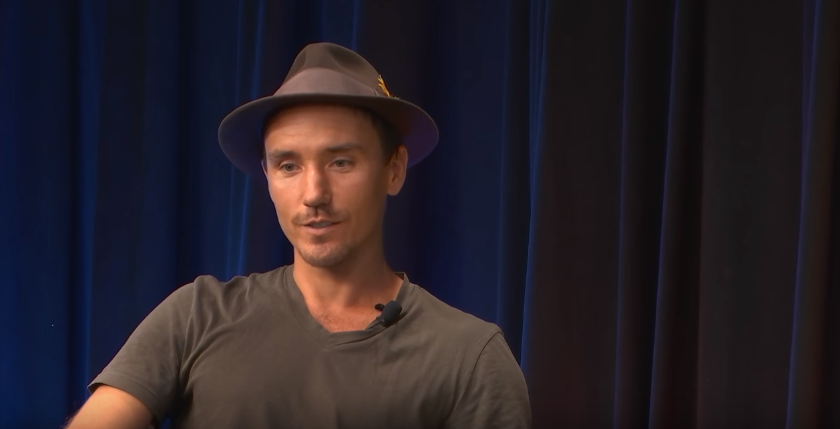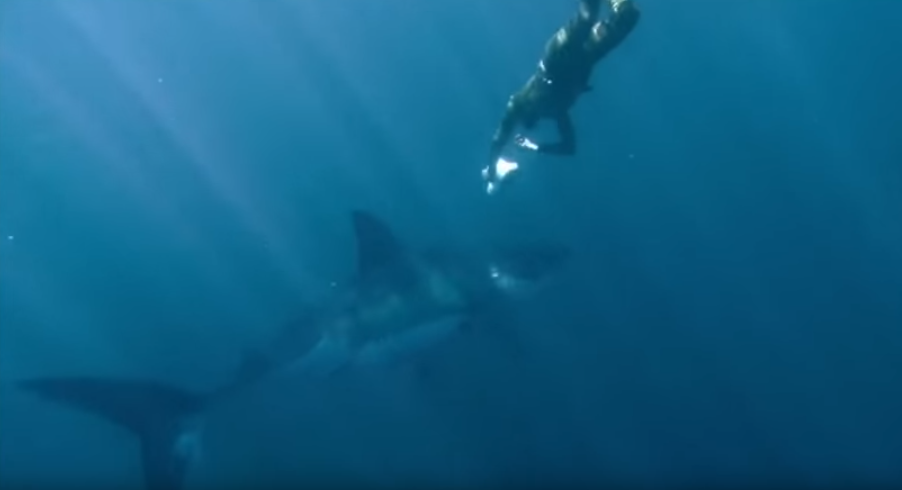
We lost an amazing sharks conservationist on January 31st, 2017. It is a tragic loss, not just for his family and friends, but for marine conservationists and divers from around the world. He died doing what he loved, making films and working to protect sharks.
How could such a skilled and professional diver lose his life diving? Captain Paul Watson explained on the facebook page official fanpage of seashepherd.org:
“Rob once told me that there were many dangers in filming sharks but being attacked by a shark was the least of his concerns. He loved and understood sharks and he changed the views of millions about sharks, reversing the once almost universal that many species of sharks are monsters as portrayed by Spielberg. He saw them as graceful, fascinating creatures deserving of respect and protection.
Rob and another diver were diving deep that day, looking for sharks around the wreck of a ship called the Queen of Nassau at a depth of about 285 feet. Rob had never dove that deep before and it was the combination of that depth and the technology he was using that led to the tragedy of his death.

That technology was his rebreather. He was not using scuba tanks. He elected to use a rebreather instead and I can understood why. It is difficult to film sharks while using scuba tank. They flee when they see the bubbles and hear the regulators.
Back in 2002 I was diving with sharks with Rob at Cocos Island some 300 miles off the West Coast of Costa Rica. That evening I suffered a severe headache because in trying to film hammerheads I would hide behind a rock waiting for the approach of some sharks. I would then dash out holding my breath for as long as I could to get close to the sharks. And as soon as I took a breath of air and exhaled the bubbles, the sharks would panic and speed away.
With a rebreather, it is possible to swim close and alongside the sharks. Without bubbles, they are not spooked.
The other advantage of a rebreather is that a diver can go deeper and stay down longer.
Unfortunately Rob had only been certified for a rebreather a few days before this tragic dive.
Francesco Saverio D’Aquino, Luca Lucarini and Fabio Perozzi are the authors of the book Rebreather Why Not?! These three men are Sea Shepherd supporters and included us in their book and Francesco Saverio D’Aquino sent me a copy of the book which I studied closely.
The first chapter of the book states “rebreather diving is a potentially dangerous activity that could expose the diver to significantly high risks of death or permanent illness especially if incorrectly practiced or because of insufficient planning on the part of the diver. Rebreather diving requires training, specialized equipment and extensive experience. “

Rob Stewart was a highly professional diver, he took the training and he was certified and he had good equipment. Unfortunately although he had extensive experience as a diver he lacked that extensive experience with rebreathers.
The technology for the use of a rebreather is complicated but essentially it means that the same air that is exhaled is again inhaled. The rebreather scrubs the CO2 from the other gases and even a small diminishment in the removal of the CO2 can be dangerous. CO2 in the blood can trigger deep dive narcosis. The diver needs to learn how to detect the CO2 in the body and this is difficult because it slowly sneaks up on the diver as CO2 levels rise without detection building up inside the cells and when suddenly released, the first sign of it’s effect is loss of consciousness.
Some divers can tolerate higher levels of CO2 than others.
One moment the diver feels absolutely fine, a second later without warning the diver is unconscious.
Three deep dives in one day pushed the limits.
When Rob went missing the first clue to what happened was the fact that as they surfaced the other diver passed out, as he was being pulled onboard. When they looked for Rob he was gone which indicates that Rob also lost consciousness when he surfaced. The other diver stated that he got a signal from Rob that he was okay but Rob would not have been given any indication that he was not okay because the first sign that things are not okay is loss of consciousness. He did not even have time to inflate his vest and his weight belt would have sunk him like a stone as soon as he passed out.
Even the most experienced rebreather divers are routinely cautious. Rebreathers are used by military and hi-tech divers and their use is not advised for recreational divers. Rob knew how to use the device but apparently erred in undertaking three deep dives in one day. As he surfaced CO2 was suddenly released into his blood resulting in the loss of consciousness.
My initial reaction upon learning of some of the circumstances was that Rob was not missing and was in fact lost. I intuitively felt we would not find him alive but we had to try. I contacted the Coast Guard base in Key West. They advised us to search outside the area where Rob was reported missing because the Coast Guard had that area well covered and the Gulfstream could have carried him north at between 3 and 6 knots. The Coast Guard advised us to concentrate on the possibility that he was on the surface between Alligator reef and as far north as Jupiter, Florida.
We searched until his body was located some 200-metres from where he sank, untouched by any shark.
Rob Stewart made an enormous contribution to humanity’s perceptions of sharks. He produced two incredible award-winning documentaries, Sharkwater and Revolution and was working on Sharkwater Extinction when he died. He has left us with this important educational legacy and in doing so he made a significant contribution to marine conservation.
Rob weighed the advantages of using a rebreather against the risks and chose to take the risks because he wanted to approach and film sharks without spooking them. Rob unfortunately made a fatal technical mistake in an element where mistakes are unforgiven.
He died however doing what he loved and in an element that he loved.
Our crew on the John Paul DeJoria will be thinking of Rob when they dive and film sharks next month off the West Coast of Central America. His invaluable service to the cause of marine conservation and especially of sharks will never be forgotten”.
